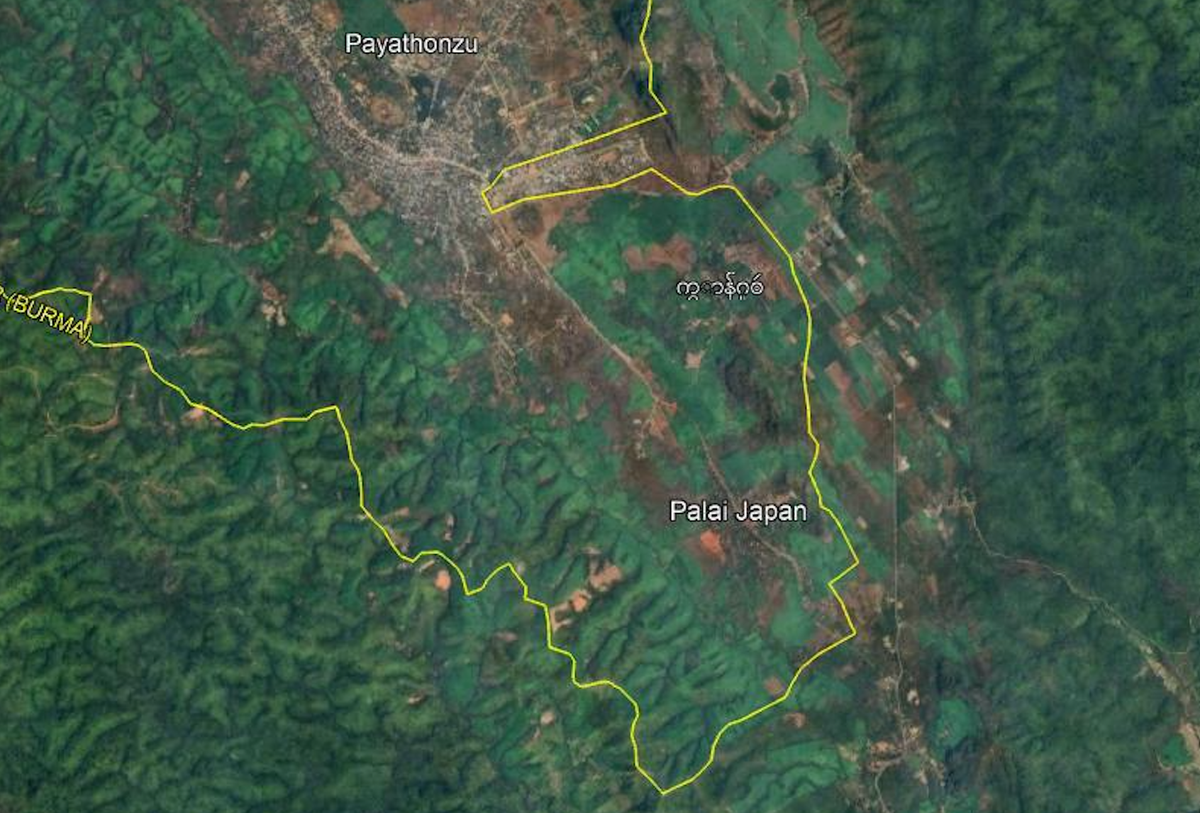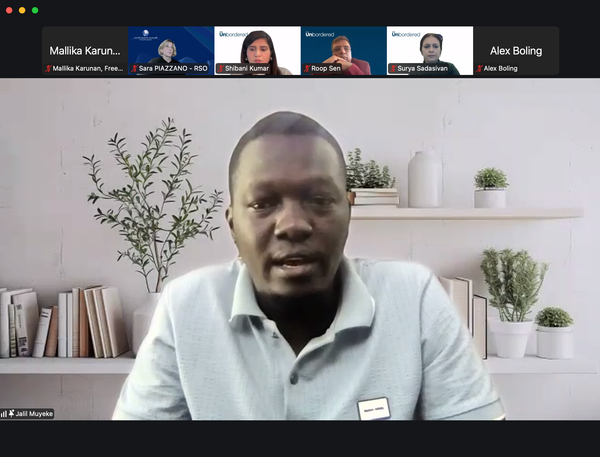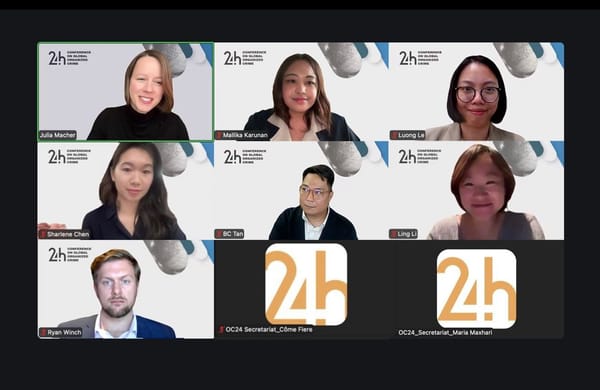Traffickers target new groups of victims to work in cyber-scamming compounds
CSOs call for urgent action as trafficking for forced criminality draws in more victims, the U.S. temporarily suspends all foreign assistance programs, and Australia’s new anti-slavery commissioner calls for reforms to its forced labour laws.

Reports from both survivors of forced criminality and civil society organizations (CSOs) on the ground suggest that the criminal syndicates behind online scamming operations are growing larger and becoming increasingly sophisticated in their methods. Traffickers now incorporate artificial intelligence (AI), malware and deepfakes into their criminal activities, and make increasing use of underground markets and cryptocurrencies to illicitly fund and support their expanding operations. Satellite imagery has captured the physical expansion of several compounds in Cambodia and the spread of compounds into new geographical areas in Myanmar such as Payathonzu Town and the Three Pagodas Pass, resulting in local inflation and other economic repercussions.
CSOs further report that increasingly extensive forms of recruitment and ever more lucrative offers are being used to entice individuals into what they believe will be well-paid, promising jobs. Aside from the targeting of individuals with multilingual proficiency, recruitment has expanded to attract skilled workers such as musicians, actors, models, and influencers with existing fanbases, coercing them to lure their followers into investing money through fraudulent schemes.
Members of Freedom Collaborative’s Trafficking for Forced Criminality Response Working Group also report cases of increasingly severe forms of torture and psychological abuse inflicted upon victims, with some so traumatized they are unable to recall their names or country of origin. Yet identification of and support for survivors remains deficient. Attempts to positively identify individuals are complicated by the increasingly blurred lines between victims of exploitation and perpetrators, while failure to uphold the non-punishment principle can deter victims from coming forward or cooperating in investigations.
Furthermore, rescue efforts remain inconsistent. In recent headlines, Wang Xing, a Chinese actor, was trafficked from Bangkok via Mae Sot into a cyber-scam compound in Myawaddy, Myanmar, and forced to undergo training to scam others. Despite hundreds of thousands of victims reported to be trapped inside compounds across Southeast Asia for months and even years, and some facing punitive legal measures upon their escape, Wang Xing was rescued by Thai authorities and brought back to Thailand just three days after first arriving in the Myawaddy compound.
Through its Trafficking for Forced Criminality Response Working Group, supported by the USAID Cambodia CTIP project, Freedom Collaborative recently provided a response to a Request for Information (RFI) to the U.S. Department of Labor’s Bureau of International Labor Affairs (ILAB) on the intersection of forced scamming and child labour in Southeast Asia; the response highlighted cases involving minors in online scam operations as both victims and as recruiters, accounting for approximately 20 per cent of several organizations’ overall caseloads. Scam hubs, along with their surrounding environments, often create conducive settings for exploitation, drawing on local labour, including children, to sustain their activities. Furthermore, the industries that surround these hubs also exploit children in various capacities that, while not directly related to scams, are still connected to the economic activities prevalent in these regions. Freedom Collaborative is also supporting connections between its working group and members of the East and Horn of Africa Anti-Trafficking (EHAAT) network to support the safe repatriation of victims from East Africa.
Those involved in the response to trafficking for forced criminality continue to call for urgent policy-level cooperation to address this rapidly escalating situation. A recent report by the United Nations Office on Drugs and Crime (UNODC) estimated financial losses to cyber-scams in East and Southeast Asia of between US$18 billion and US$37 billion thus far, while individuals from more than 60 countries remain trapped and victimized.
The actions needed to obstruct the expansion of scamming compounds and frustrate the criminal syndicates behind them require extensive cooperation at both the regional and international levels, and the involvement of government and consular departments, law enforcement agencies, financial organizations, and private companies. These stakeholders must urgently provide the ongoing support and resources needed to push back against these increasingly emboldened crime groups and the human trafficking that sustains their activities. They must also improve identification processes and offer enhanced support for victims. Investing in grassroots and community-led initiatives to provide alternatives, and programs that empower local communities, could also enhance prevention efforts and reduce the pull of exploitative job offers.
Here’s a round-up of other noteworthy news and initiatives:
Yesterday, an executive order was issued halting U.S. foreign development assistance for 90 days to review and realign aid programs with American interests and foreign policy objectives. The pause will allow assessments of efficiency and policy alignment, with decisions on continuing, modifying, or ending programs based on review findings.
Human Rights Watch’s World Report 2025 calls for greater consistency and accountability in addressing human rights violations globally. It criticizes the double standards of powerful nations in their foreign policies and highlights severe abuses, such as Myanmar’s military atrocities and violations in Gaza, underscoring the urgent need for collective action to uphold international human rights norms.
The U.S. Government has released its first-ever “Trade Strategy to Combat Forced Labor”, outlining a comprehensive approach to leveraging trade tools to address forced labour. The strategy details current and potential actions the U.S. will employ to address the issue. By building on existing efforts, such as the Uyghur Forced Labor Prevention Act, the strategy aims to position trade policy as a tool for positive change and a means through which to eradicate forced labour globally.
A Guardian investigation reveals that Australia has imported thousands of goods from Chinese companies blacklisted by the U.S. for alleged Uyghur forced labour links, prompting criticism from the Uyghur community and calls for stronger anti-slavery measures. Australia’s new anti-slavery commissioner has warned that the country’s laws are inadequate and called for urgent reform, including a potential import ban on goods linked to forced or child labour.
The Thai Government has launched an amnesty scheme allowing undocumented migrant workers from Myanmar, Cambodia, Laos and Vietnam to legalize their status. However, the process requires the payment of high fees and ongoing taxes, putting financial pressure on workers who already earn less than the living wage.
The UK Foreign Secretary has visited Bulgaria to advocate for global children’s care reform, emphasizing the shift from institutional care to family-based solutions, which are more cost-effective and beneficial for children’s development. Bulgaria, a leader in these reforms, showcased its commitment through programs supporting vulnerable children and policies banning residential care for young children.
Unbias the News is seeking pitches on migration (Europe-focused) and the environment (global) which emphasize underreported stories with fresh perspectives from diverse journalists. The deadline is 9 February 2025.
The Department of State’s TIP Office invites Statements of Interest (SOIs) for projects under the Program to End Modern Slavery (PEMS) to validate promising intervention approaches. Applicants should propose practices with initial evidence of effectiveness, to be implemented alongside rigorous evaluations to assess impact, adaptability, and success, with funding covering both implementation and evaluation. The closing date for applications is 4 Feb 2025.




